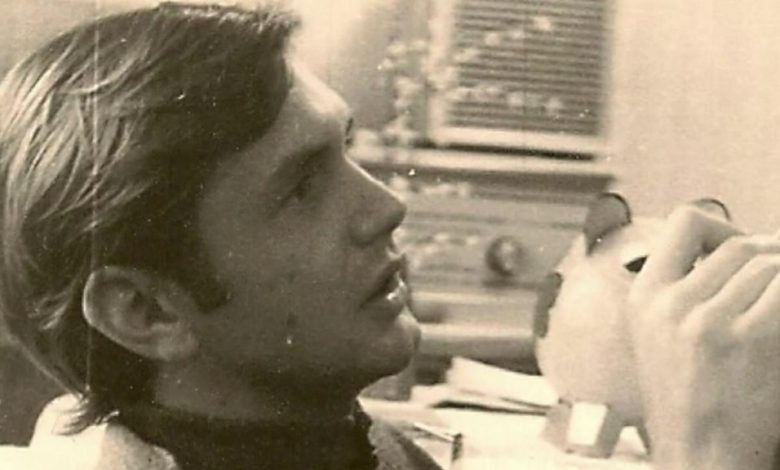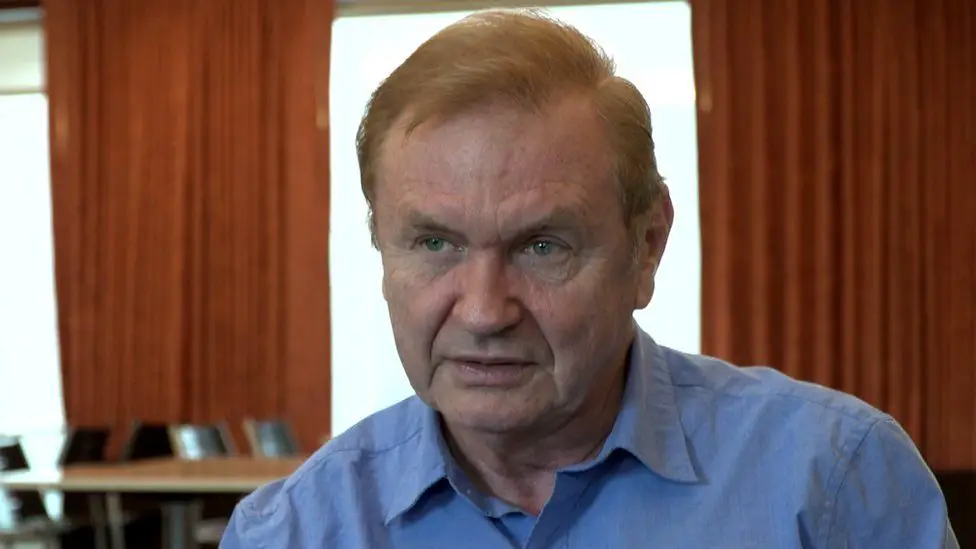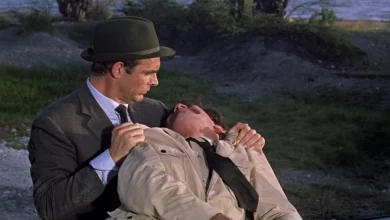who is jack barsky?
A James Bond From The East Unveiling the Intriguing Life of a Former KGB Spy

The world of espionage is shrouded in mystery, but few stories capture the imagination quite like that of Jack Barsky. From his humble beginnings in East Germany to his life as a double agent for the Soviet Union’s KGB, Barsky’s journey is a captivating tale of secrecy, deceit, and ultimate redemption. In this article, we will delve into the enigmatic life of Jack Barsky, exploring his motivations, his role as a spy in the United States, and the remarkable transformation that followed. Join us as we peel back the layers and uncover the intriguing story of Jack Barsky.
Key Takeaways
- Jack Barsky, born Albrecht Dittrich, was recruited by the KGB in East Germany during the Cold War era.
- Barsky successfully infiltrated the United States, assuming an American identity and working as a computer programmer while carrying out covert operations for the KGB.
- After the fall of the Soviet Union, Barsky chose to sever ties with the KGB and embraced his true identity, embarking on a journey of personal transformation.
- Barsky’s memoir, “Deep Undercover: My Secret Life and Tangled Allegiances as a KGB Spy in America,” shed light on the world of espionage and offered valuable insights into his experiences.
Jack Barsky: A Brief Background
Born in 1949, Albrecht Dittrich grew up in East Germany, a divided country during the Cold War era. His life took a drastic turn when he was recruited by the KGB while studying chemistry at the University of Jena. Under the codename “Jack Barsky,” he received extensive training in espionage techniques and was sent on a mission to the United States.

Infiltrating the United States
Barsky arrived in the United States in 1978 with the intention of blending into American society and carrying out his covert operations. Adopting an American identity, he managed to establish himself as a naturalized citizen and began working as a computer programmer for a major corporation. This provided him with access to valuable information that he could pass on to his Soviet handlers.
Espionage Activities and the Cold War
During his time in the United States, Barsky engaged in various espionage activities on behalf of the KGB. His primary focus was gathering intelligence related to American military and technological advancements. This information was crucial for the Soviet Union to maintain its competitive edge in the ongoing Cold War. Barsky operated discreetly, ensuring that his activities remained undetected by American authorities.

The Double Life
Maintaining a double life was no easy task for Barsky. On the surface, he appeared to be an ordinary American citizen. He married, started a family, and became deeply ingrained in American society. However, behind closed doors, he continued to communicate with his KGB handlers, providing them with valuable classified information. Barsky skillfully balanced these two identities, evading suspicion for over a decade.
The Fall of the Soviet Union and a New Beginning
With the fall of the Soviet Union in 1991, Barsky’s role as a spy came to an abrupt end. The dissolution of the KGB left him without the support and infrastructure he had relied upon for years. Rather than returning to Russia, Barsky chose to sever ties with the KGB and live as a free man in the United States. He began the process of integrating into American society, embarking on a remarkable journey of self-discovery and redemption.
Unveiling the Truth
Barsky’s incredible story only became public knowledge in 2015 when he came forward and revealed his true identity. His memoir, “Deep Undercover: My Secret Life and Tangled Allegiances as a KGB Spy in America,” captivated readers worldwide. Barsky’s decision to share his experiences shed light on the shadowy world of espionage and provided a unique perspective on the inner workings of the KGB.

Life After Espionage
Following his public revelation, Barsky transitioned into a new chapter of his life. He became a sought-after public speaker, sharing his insights into the world of espionage and offering valuable lessons on resilience, personal transformation, and the power of redemption. Barsky’s story resonates with audiences, serving as a reminder that it is never too late to change one’s path and find redemption, no matter how extraordinary the circumstances.
FAQ:
1. What motivated Jack Barsky to become a spy for the KGB?
Barsky’s decision to become a spy for the KGB was driven by a combination of factors. Growing up in East Germany during the Cold War, Barsky witnessed the stark ideological divide between East and West. His exposure to communist ideals and a desire for adventure led him to embrace the opportunity to serve his country in a covert capacity. Additionally, Barsky’s background in chemistry made him an attractive candidate for the KGB, as they sought individuals with scientific knowledge to gather intelligence on advanced technologies.
2. How did Jack Barsky manage to maintain his cover as an American citizen?
Maintaining his cover as an American citizen was paramount for Barsky’s success as a spy. He adopted a new identity, complete with forged documents, and meticulously built a backstory to support his American persona. Barsky integrated himself into American society, forming genuine relationships and even starting a family. By working as a computer programmer, he gained access to sensitive information that he could pass on to his handlers. Barsky’s ability to convincingly blend in with his surroundings and adapt to the American way of life played a crucial role in his prolonged undercover operation.
3. Were there any close calls or moments when Jack Barsky’s true identity was at risk of being exposed?
While Barsky managed to evade suspicion for over a decade, there were indeed some close calls that could have jeopardized his undercover status. One notable incident occurred when Barsky’s KGB handler defected to the United States and revealed his true identity to the FBI. However, due to the lack of corroborating evidence, Barsky’s identity remained a secret. Another close call came when Barsky experienced a health crisis, and the medical treatment he received required disclosing his true identity to the healthcare professionals. Fortunately, the professionals involved kept his secret, and Barsky continued his covert activities.
4. How did the fall of the Soviet Union impact Jack Barsky’s life as a spy?
The fall of the Soviet Union in 1991 had a profound impact on Barsky’s life as a spy. With the dissolution of the KGB and the collapse of the Soviet regime, Barsky lost his support network and the infrastructure he relied upon for his espionage activities. Left without guidance or communication with his handlers, he faced a pivotal choice. Instead of returning to Russia or seeking refuge in another country, Barsky decided to sever ties with the KGB and live as a free man in the United States. This decision marked the beginning of a new chapter in his life.
5. How did Jack Barsky manage to integrate into American society after leaving his life as a spy?
After leaving his life as a spy, Barsky faced the challenge of integrating into American society. He chose to embrace his true identity, Albrecht Dittrich, and work towards becoming a law-abiding citizen. He sought employment, built a career in information technology, and formed genuine connections within his community. Barsky also went through a process of self-reflection and personal growth, addressing the psychological and emotional toll of his past actions. Through his journey of introspection and redemptive efforts, he was able to find acceptance and successfully integrate into American society.
6. What led Jack Barsky to come forward and reveal his true identity?
Barsky’s decision to come forward and reveal his true identity was driven by a desire for closure and the need to reconcile with his past. After years of living a double life, he felt a deep sense of guilt and the weight of the secrets he carried. Sharing his story allowed him to unburden himself and seek forgiveness. Additionally, Barsky believed that his experiences could serve as a valuable lesson and provide insights into the world of espionage. By coming forward, he hoped to shed light on the complex nature of covert operations and the consequences they can have on individuals and their families.
7. What impact has Jack Barsky’s memoir had on the public’s perception of the Cold War era?
Barsky’s memoir, “Deep Undercover: My Secret Life and Tangled Allegiances as a KGB Spy in America,” has had a significant impact on the public’s perception of the Cold War era. By offering a firsthand account of the inner workings of the KGB and the life of a spy, Barsky’s memoir provides readers with a unique perspective. It humanizes the individuals involved in espionage and challenges the black-and-white narrative often associated with the Cold War. The memoir invites readers to question their preconceived notions and offers a deeper understanding of the complexities and moral dilemmas faced by those involved in intelligence operations.
8. What lessons can be learned from Jack Barsky’s story?
Jack Barsky’s story offers several valuable lessons. Firstly, it highlights the power of personal transformation and the possibility of redemption, no matter how deep one’s involvement in illicit activities. Barsky’s journey serves as a reminder that individuals can change their path and find a new purpose in life. Secondly, his story emphasizes the importance of maintaining strong moral values and ethical conduct, even in the face of external pressures. Lastly, Barsky’s experiences shed light on the enduring nature of the human spirit and the capacity for resilience in the face of adversity.
9. How has Jack Barsky’s public speaking engagements impacted audiences?
Jack Barsky’s public speaking engagements have had a profound impact on audiences worldwide. His unique perspective as a former KGB spy captivates listeners and provides a rare glimpse into the secretive world of espionage. Barsky’s presentations inspire individuals to reflect on their own lives, contemplate the choices they make, and consider the consequences of their actions. Through his storytelling, he encourages personal growth, resilience, and the pursuit of a meaningful and ethical existence. Barsky’s ability to engage and connect with audiences has made him a sought-after speaker, leaving a lasting impression on all who hear his story.
10. What is Jack Barsky’s legacy today?
Jack Barsky’s legacy lies in his ability to humanize the world of espionage and offer insights into the complex motivations and experiences of those involved. His story serves as a cautionary tale, reminding us of the lasting consequences of our choices. Barsky’s journey from spy to a reformed citizen inspires individuals to seek redemption and transform their lives. As a speaker and author, he continues to make a significant impact, sharing his story of resilience, personal growth, and the power of forgiveness. Jack Barsky’s legacy will be remembered as a testament to the indomitable human spirit and the capacity for change.
Conclusion
Jack Barsky’s life as a former KGB spy is a testament to the power of personal transformation and the capacity for redemption. From his recruitment in East Germany to his infiltration of the United States, Barsky operated in the shadows, maintaining a double life for over a decade. However, his decision to sever ties with the KGB and come forward with his true identity marked a turning point in his life. Through his memoir and public speaking engagements, Barsky has provided a unique perspective on the world of espionage, challenging preconceived notions and inspiring individuals to reflect on their own choices. Jack Barsky’s story serves as a reminder that no matter our past, we have the ability to rewrite our narrative and find redemption in the most extraordinary circumstances.










One Comment